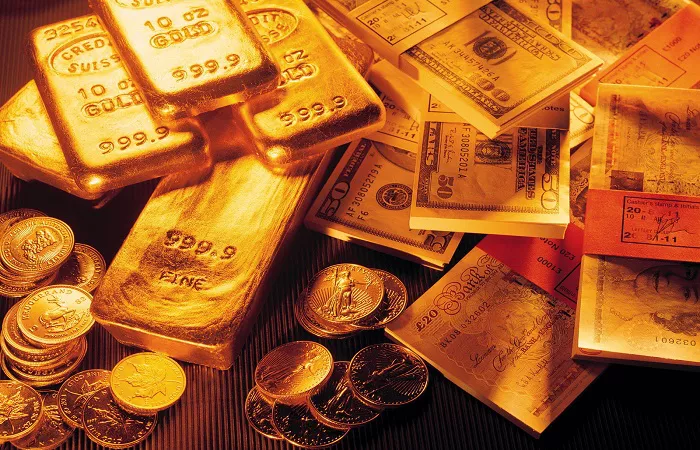Gold prices in India surged by ₹70 on Thursday, hitting an unprecedented ₹98,170 per 10 grams. This increase follows a significant jump of ₹1,650 in the previous session, fueled by favorable global market conditions. The rise in gold prices reflects growing economic concerns, including a weaker U.S. dollar and escalating trade tensions.
Factors Behind Gold’s Price Surge
Several global factors have driven the recent surge in gold prices. Chintan Mehta, CEO of Abans Financial Services, attributed the spike to a weaker dollar and escalating trade tensions between the U.S. and China. These tensions are disrupting supply chains and fueling fears of inflation and recession. As uncertainty mounts, investors are increasingly turning to gold as a safe haven, reinforcing its role as a hedge against market volatility.
Major financial institutions have also expressed optimism about gold, citing widespread sell-offs in equities, bonds, and currencies. This shift in sentiment has led to increased inflows into gold-backed exchange-traded funds (ETFs) and sustained buying activity from central banks. As a result, gold demand continues to climb, pushing prices to historic highs.
Silver Prices See Sharp Decline
In contrast to gold, silver prices saw a significant correction on Thursday. Silver fell by ₹1,400, settling at ₹98,000 per kilogram, down from ₹99,400 in the previous session. This decline underscores the volatility in the precious metals market, with investors reacting to shifting economic indicators and global uncertainties.
International Market Trends
On the international stage, spot gold initially surged to a record high of USD 3,357.81 per ounce before retracting slightly to USD 3,328.84 per ounce. These fluctuations highlight the close connection between gold prices and global economic conditions. Kaynat Chainwala, AVP of Commodity Research at Kotak Securities, pointed out that warnings from U.S. Federal Reserve Chair Jerome Powell about uncertainty in U.S. trade policy could hinder economic growth and dampen global risk appetite.
Meanwhile, spot silver in the Asian market faced downward pressure, falling 1.37% to USD 32.32 per ounce. Investors are now closely monitoring key U.S. macroeconomic data, including initial jobless claims and the Philadelphia Fed manufacturing index, which are set to be released later today.
Market Outlook
As the market navigates these uncertain times, investors are closely awaiting the European Central Bank’s (ECB) upcoming policy decision, which could provide further insights into the interest rate cycle amid ongoing U.S. tariff concerns. Saumil Gandhi, Senior Analyst at HDFC Securities, emphasized that these developments will play a crucial role in shaping market sentiment in the days ahead. The interplay of economic data and central bank policies is expected to continue influencing gold and silver prices as investors seek stability in an increasingly volatile environment.
Related topics:
- What is the Value of 18K Gold?
- Why Does Gold Price Increase During War?
- What is the Best Price Being Paid for Gold Sovereigns?


